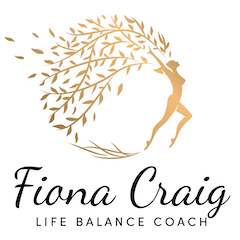We’ve all experienced the feeling of being disliked, overlooked, dismissed or ignored through various interactions or events in our life.
I vividly remember that first pang of rejection. I was 6 years old. A school friend didn’t invite me to her “Barbie” birthday party. I was devastated when I found out. I didn’t dare ask her or enquire the reason. I took it personally. I wasn’t good enough.
As we move through the stages of life from school, study to work, rejection comes along for the ride.
Post “Barbie” and I can recount not getting into university, rejected for modelling jobs, from being dismissed by a boyfriend to being overlooked for a job or job promotion.
Rejection literally hurts, and it hurt me and ate at my confidence and self worth.
Why does the pain of rejection wound us so deeply?
When scientists had volunteers in an MRI machine and recount a rejection story, they were surprised. Their studies revealed that the same areas of the brain that experience pain are activated when we experience rejection. That’s because the experience of rejection actually piggybacks the neurological pathways to physical pain.
The reason we can feel such intense pain can be explained by evolutionary psychologists that studied primitive man. We once lived in tribes. It was a necessity for our survival and the survival of our race. To be ostracised from the tribe, out alone in the elements and fending for ourselves, would surely mean certain death.
Gone are the sabre tooth tigers, but we still experience this emotional pain and it needs to be soothed. To dream, dare and live large also means some rejection and criticism.
Learning to move through the emotions attached to rejection/criticism is the key to success, and here are a few strategies to give you a healthier and better way to process it:-
#1 Seek your support network
As previously mentioned, getting rejected whether it be socially or romantically destabilises us, and our need to belong. A way to soothe ourselves would have been to reconnect with our tribe and the same goes for today.
Reach out to your core group of friends, work colleagues and family members to strengthen feelings of being loved, cared and valued to emotionally get yourself back on your feet.
#2 Acknowledge the emotion
When we fail to acknowledge our emotions they can lead to terrible physical illnesses. Avoid pushing down this pain as it only perpetuates your suffering. Understanding and coming to terms with rejection can mean tapping into the root cause.
Our fear of rejection and feelings that surface in being rejected are based on some belief. What are your beliefs around rejection? So when someone rejects you is it fear around not being loved, being alone or not being good enough?
I want to stress that this process involves you being kind to yourself. There’s no gold medal for rushing a dialogue with the heart. You are seeking answers within and they may take time to reveal themselves.
#3 Learn and grow from the experience
Whilst rejection might seem like punishment it can also be a hidden gift. Use the experience as an opportunity to revaluate your thoughts, feelings and behaviours to determine ways you can grow and become a better person.
It can also be a time to take stock of the people around you. Who in your life uplifts and inspires you to be your best, and who drags you down into a toxic soup of negativity? Who do you need to move towards, and who do you need to walk away from?
It was the repeated rejections from my early foray into modelling that resulted in full-time work behind the camera as a TV/film casting/TV producer’s co-ordinator at Ogilvy & Mather advertising agency.
We sometimes forget that a rejection is merely an action and not an emotion. You may not be able to control rejection, but you certainly can control the way you mentally and emotionally respond to rejection.
Ultimately knowing the beliefs you have around rejection will help you to heal, to feel lighter and stronger, like an emotional burden has been lifted. Because you will be turned down for all sorts of reasons, and they have nothing to do with who you are as a person.
 Fiona Craig is an NLP practitioner & life coach, psychotherapist, business mentor, and published author of the award winning self-help book, “Stuck in a Rut – How to rescue yourself & live your truth” helping women remove the fear, worry and guilt to confidently take the steps towards creating the life they want to live.
Fiona Craig is an NLP practitioner & life coach, psychotherapist, business mentor, and published author of the award winning self-help book, “Stuck in a Rut – How to rescue yourself & live your truth” helping women remove the fear, worry and guilt to confidently take the steps towards creating the life they want to live.
Fiona has been interviewed by The Australian Women’s Weekly, Women’s Fitness Magazine and The New Daily and written articles for Collective Magazine, Herald Sun Melbourne, Sunday Life Magazine, Career One, I Am Woman Magazine, plus Mouths Of Mums and other online publications. You can learn more about working with Fiona at www.lifebalancecoach.com.au or call 0405 433 217.













